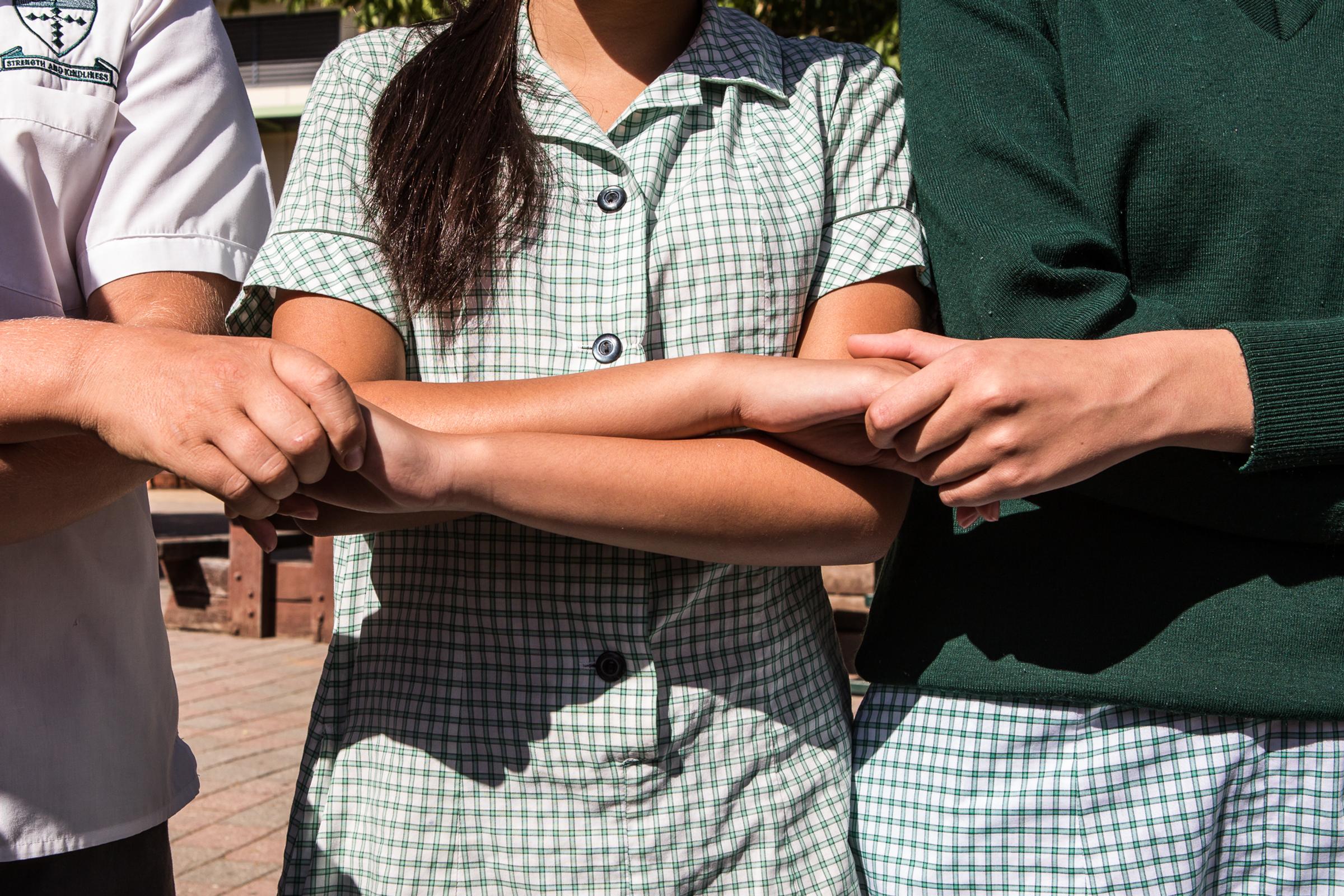Pastoral Care and Wellbeing

Improving relationships, building resilience and taking responsibility through the principles of Choice Theory.
William Glasser’s Choice Theory emphasises the individual's control over his or her own feelings and actions suggesting that all behaviour is, at some level, chosen. Choice Theory proposes that we try to satisfy our basic needs (survival, freedom, fun, power, love/belonging) through our behavioural choices and whether consciously or subconsciously, our behaviours are a direct result of our attempt to meet a need.
Sometimes in an attempt to satisfy a need, the behaviour chosen or displayed can be problematic, effectively creating frustration of self and others, pain or conflict.
A practical example of this might be as simple as:
Student A becomes bored in class and decides to bait student B by calling out their name loudly. This creates a distraction which upsets student B, who retaliates by making a derogatory comment about student A. Both students are warned by the teacher whose class environment has been disrupted.
In this scenario the Student A is most likely motivated by the need to have fun and chooses to meet that need by disrupting the environment they are working in. Student B, feeling the need to maintain some “power” or control, chooses to retaliate. Ultimately the behaviours have a detrimental impact on all concerned as the class has been disturbed and the students face a consequence. Whilst in this instance the impact may not be severe, learned patterns of behaviour (habits) can result in ongoing problems and more significant consequences.
Responding to such behaviours may involve a conversation that focuses on the needs of all parties and results in identifying a more appropriate way to have those needs satisfied. Choice Theory maintains a focus on controlling the things that one may have immediate control over and not reacting to external influencing factors in a problematic manner. A discussion around “values” may also be of benefit here (individual values, school, family or societal values).
Whilst Glasser maintains that “all total behaviour is chosen; we only have direct control over the acting and thinking components.” Which is to say we can only control our feelings and physiology indirectly through how we choose to act and think.
Glasser identifies seven “connecting” behaviours that are beneficial in building and maintaining healthy relationships. These are: supporting, encouraging, listening, accepting, respecting, trusting and negotiating differences. Most of these behaviours will be prevalent in positive relationships.
Alternatively, Glasser identifies seven “deadly” behaviours, which can prove destructive for relationships. These include: criticising, complaining, blaming, nagging, threatening, punishing or rewarding to control.
Upon examining the latter, it is not to say that the person displaying these behaviours is necessarily totally in the wrong. A fed-up parent or partner may constantly nag (action) about a mess that is left in the kitchen on a daily basis. This situation may be rectified by the person affected explaining how the situation impacts them (feeling) and the person leaving the mess remembering to tidy up behind themselves (acting). It is important to note that a relationship in which “deadly” behaviours are highly prevalent may need some attention and individual reflection.
For more information, check out the link below for the “Ten Axioms of Choice Theory.”
https://www.greatvalleyacademy.com/files/4258/file/ten-axioms-of-choice-theory.pdf
Be sure to tune in next time to hear about “Locus of Control.”
Commendations
How often are you checking into PAM? If you require assistance or your password information, please contact us at St. Joseph’s. PAM enables you to check your student’s general progress, and you can also see if your student has received any Commendations - these are incredibly significant and should be celebrated!
If we can assist any further, please let us know!
School TV: Special Report
A Conversation on Consent
The recent allegations of sexual assault covered in the media, have sparked an online petition instigated by a former student from a private girl’s school in the eastern suburbs of Sydney. The petition asked for former students who had experienced sexual assault whilst still at school to come forward and share their stories. The petition has since gone viral with an enormous response from thousands of young women who have either signed the petition or shared their experience.
The accounts shared by these young women are disturbing, shocking, graphic and upsetting. It has set in motion a wake-up call for many schools to reassess their curriculum around sex and life education. The clear message arising from this is that education around consent is being delivered too late, with many young women being subjected to sexual assault before they reach Year 10. The petition is calling for change to help protect young people across the nation.
This also highlights a strong need for parents to step-up and start having conversations around consent. It is not enough to assume that your teenager knows or understands what it means and the implications surrounding it. Teenagers need to learn about boundaries, enabling them to respect themselves and their partners. Talking about consent regularly will help normalise it and encourage your teenager to experience healthy relationships as they journey into adulthood.
For support in relation to some of the issues raised in this Special Report, please contact one of the following services:
1800 RESPECT (1800 737 732)
Lifeline 13 11 14
Beyond Blue 1300 224 636
https://sje.vic.schooltv.me/wellbeing_news/special-report-conversation-consent
We continue to provide access to School TV and the wonderful resources and information that are imperative in supporting parents, families and students as we work together to navigate challenges, and celebrate successes, joys and milestones.
Please check out our SchoolTV by using the link below.
We would love your feedback!
If you have accessed SchoolTV and benefited from any of the resources and information available, please let us know at wellbeing@sje.vic.edu.au
Rach Chapman
College Leader ~ Pastoral Care and Wellbeing
